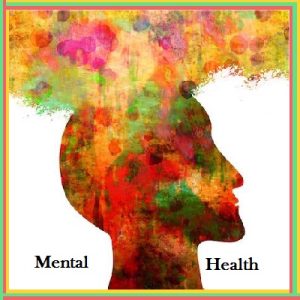
What is Mental Health?
Mental health refers to the state of an individual’s psychological, emotional, and social well-being. It encompasses an individual’s ability to cope with everyday stresses, to work productively, and to form healthy relationships with others. Mental health is a crucial component of overall health and well-being, and it is essential to maintaining a fulfilling and meaningful life.
Mental health is not just the absence of mental illness. Just as physical health involves more than just the absence of disease, mental health involves more than just the absence of mental health conditions. Good mental health involves a range of positive psychological, emotional, and social attributes, including the ability to manage stress, cope with adversity, and maintain positive relationships with others.
What are the causes of Mental Health?
The causes of mental health conditions are complex and multifaceted. They can be influenced by a range of biological, environmental, and social factors, including:
- Genetics: Some mental health conditions are inherited, meaning they are passed down through families via genes.
- Brain chemistry and structure: Changes in brain chemistry or structure can affect an individual’s mood, thoughts, and behavior and contribute to mental health conditions.
- Trauma and life experiences: Traumatic events, such as abuse, neglect, or violence, can increase the risk of developing mental health conditions, as can chronic stress, financial struggles, and other life experiences.
- Substance use and addiction: Substance use and addiction can contribute to the development of mental health conditions, such as depression, anxiety, and psychosis.
- Medical conditions: Certain medical conditions, such as thyroid disorders or neurological conditions, can affect mental health and contribute to the development of mental health conditions.
- Environmental factors: Exposure to environmental toxins, such as lead or pesticides, can affect mental health and increase the risk of mental health conditions and more.
What are the symptoms of Mental Health?
The symptoms of mental health conditions vary depending on the specific condition and the individual. However, some common symptoms of mental health conditions may include:
- Changes in mood: such as persistent sadness, irritability, or anger.
- Changes in behavior: such as withdrawing from friends and family, avoiding activities, or engaging in risky behaviors.
- Changes in sleep patterns: such as difficulty falling or staying asleep, or sleeping too much.
- Changes in appetite: such as overeating or under-eating.
- Fatigue or lack of energy: feeling tired or low on energy, even after getting enough rest.
- Physical symptoms: such as headaches, stomachaches, or other physical complaints with no clear medical cause.
- Difficulty concentrating: struggling to focus or remember things.
- Feelings of hopelessness or helplessness: feeling like things will never get better, or that there is nothing that can be done to improve the situation.
- Thoughts of suicide or self-harm: having thoughts about hurting oneself or ending one’s life.
Reasons why Mental Health is important!
- Quality of life: Good mental health is essential for a fulfilling and meaningful life. It allows individuals to enjoy positive relationships, pursue their interests and goals, and feel a sense of purpose and accomplishment.
- Physical health: Mental health is closely linked to physical health. Poor mental health can lead to a range of physical health problems, such as cardiovascular disease, obesity, and immune system disorders.
- Productivity: Mental health is crucial for productivity at work or school. Good mental health enables individuals to focus, learn, and perform well in their daily activities.
- Relationships: Mental health plays a vital role in forming and maintaining healthy relationships with others. It allows individuals to communicate effectively, manage conflicts, and build supportive social networks.
- Resilience: Good mental health promotes resilience, which is the ability to bounce back from setbacks and adapt to changing circumstances.
- Recovery: For those who experience mental health conditions, good mental health is essential for recovery. It enables individuals to manage their symptoms, seek treatment, and engage in activities that promote well-being.
Examples of good Mental Health!
- Emotional resilience: the ability to bounce back from challenging situations or setbacks and maintain a positive outlook.
- Positive self-esteem: feeling good about oneself and having a positive self-image.
- Emotional intelligence: the ability to understand and manage one’s own emotions and the emotions of others.
- Good coping skills: the ability to manage stress and cope with life’s challenges in healthy ways.
- Sense of purpose: having a clear sense of direction and meaning in one’s life.
- Positive relationships: having healthy and fulfilling relationships with others.
- Ability to set boundaries: being able to establish healthy boundaries in relationships and protect one’s own well-being.
- Good communication skills: being able to express oneself effectively and listen actively to others.
- Optimism: maintaining a positive outlook and belief in one’s ability to overcome challenges.
- Self-care: prioritizing one’s own well-being and taking care of oneself physically, emotionally, and mentally.
Summary.
Mental health refers to the overall psychological, emotional, and social well-being of an individual. Maintaining good mental health has several advantages, including better overall physical health, improved relationships, and greater resilience and recovery from mental health conditions.





